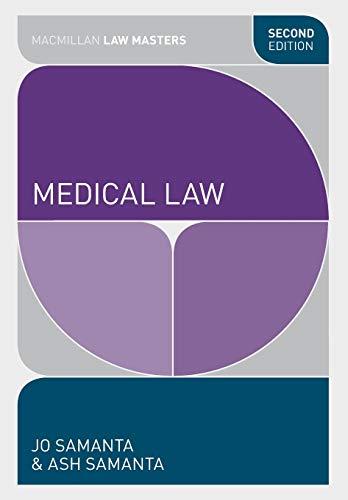Question
TLG has a new client, Clean-n-Shine (Clean), a commercial cleaning company incorporated and located in Maryland, but doing business in all Mid-Atlantic states. Clean uses
TLG has a new client, Clean-n-Shine (Clean), a commercial cleaning company incorporated and located in Maryland, but doing business in all Mid-Atlantic states. Clean uses its own line of cleaning products and also sells its products to other businesses via the internet.Recently, the Delaware legislature enacted a law banning all sales and importation, until further notice, of Clean's Shine It floor cleaner in Delaware.It was discovered that one of the ingredients in Shine It, derived from corn, is contaminated and causes a quick-growing mold to spread on surfaces to which it is applied. The mold can be toxic to humans and can cause damage to floors.
Clean wants to expand its products to sale ShineIt in Delaware.If Clean can sale share Shine it in Delaware, it will increase its income and profits.Clean, therefore, wants to challenge the new law as unconstitutional, and it has consulted TLG for advice.
Can the Delaware restriction on the sale of Shine It violates the Interstate Commerce Clause.
If so how so by the constitutional law.
Can the "police powers" derived from the 10th Amendment of the U.S. Constitution, applies to the Delaware law, and if so, why based on constitutional law.
Step by Step Solution
There are 3 Steps involved in it
Step: 1

Get Instant Access to Expert-Tailored Solutions
See step-by-step solutions with expert insights and AI powered tools for academic success
Step: 2

Step: 3

Ace Your Homework with AI
Get the answers you need in no time with our AI-driven, step-by-step assistance
Get Started


